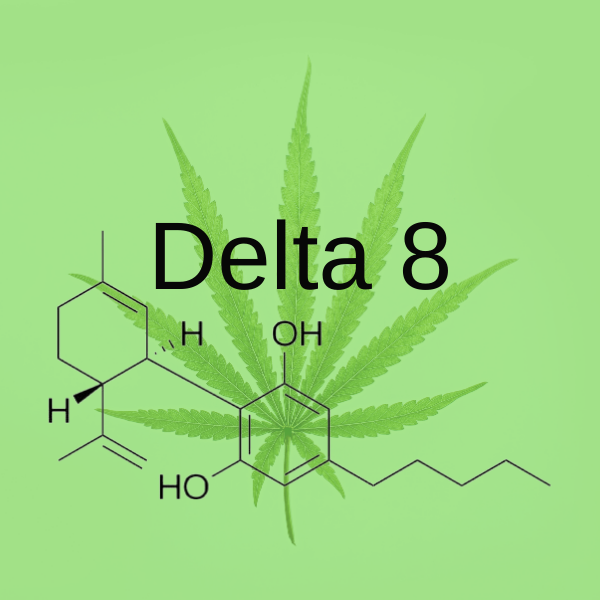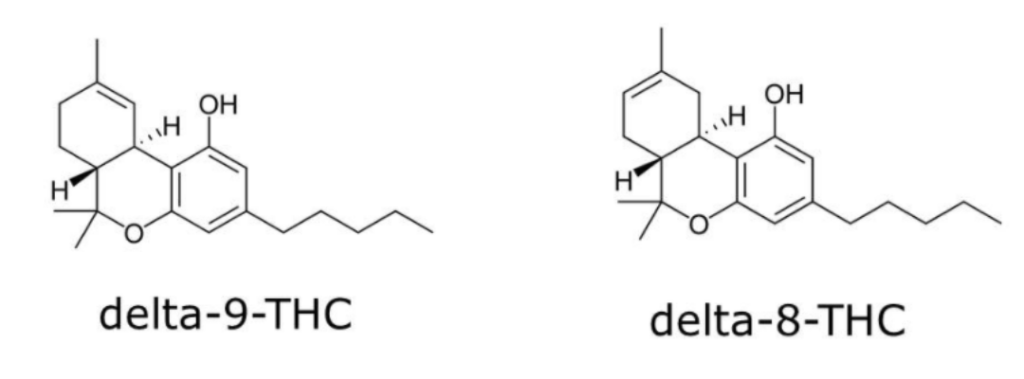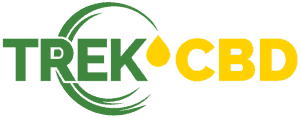When you come into Trek CBD, we want to get to know you and start by…
What is Delta 8 THC?

It was a rainy Thursday and a customer that had been in the day before has just walked back into the shop with an excited look on his face and a question.
What is Delta 8?
At Trek CBD, we enjoy helping our customers try new products. The day before, I had given this particular client a Delta 8 Chocolate to try. I went back through what makes Delta 8 different from CBD and he shared how it was one of the best things he’d ever tried.
The questions keep coming and it is why I’m going to dive a little deeper into Delta 8 below.
To date, 38 states have legalized the use of cannabis for medical or recreational use (the rest need to catch up, I am speaking to you North Carolina and Nebraska). The public sentiment for legalization has never been higher, (pun intended) as we demand more natural alternatives to prescription medicines, (read: “Why is everyone talking about CBD”).
With so many of us becoming more familiar with plant-based alternatives, why have you not heard of Delta 8? Well, it’s been overshadowed by its cousin Delta 9 THC. Think of Gwyneth Paltrow and Katherine Moennig (I had to look them up).
Delta 9 is the most well-known cannabinoid and it’s the one that gets you really high and, for some, induces a state of paranoia.
Technically speaking, the molecular difference between Delta-8-THC and its famous cousin is small, but it’s enough to change how it binds to the brain.

THC binds tightly to CB1 receptors, which are found primarily in the brain but are present throughout the body. Those receptors are part of the endocannabinoid system – a network of receptors and chemicals that influence a variety of experiences.
THC’s chemical structure is similar to that of anandamide, a chemical that allows the brain to send messages as part of the endocannabinoid system.
According to the National Cancer Institute, Delta-8-THC can be defined as:
“An analogue of tetrahydrocannabinol (THC) with antiemetic, anxiolytic, appetite-stimulating, analgesic, and neuroprotective properties. [Delta-8-THC] binds to the cannabinoid G-protein coupled receptor CB1, located in the central nervous system…This agent exhibits a lower psychotropic potency than [delta-9-THC], the primary form of THC found in cannabis.”
What Can You Expect When Using Delta 8?
Studies have shown that in smaller doses, Delta 8 leaves users clearheaded, but in larger amounts, it can be a heavy sedative
How Do I Consume Delta 8?
Since Delta 8 makes up less than 1% of the hemp plant’s cannabinoids, it’s extracted into a distillate that can be used for edibles or vaping. Currently, there are not strains of flower that contain sufficient concentrations of Delta 8 for smoking (be aware of hemp flower that has been sprayed with D8 oil).
What is the Current Legality of Delta 8 THC?
According to the 2018 Farm Bill, all hemp-based products (including Delta 8) cannot contain greater than 0.3% Delta 9 THC. We follow the regulations closely and will update this blog post should things change.
Lastly, where you buy your CBD products matters. This industry remains unregulated and the demand for CBD and Delta 8 has unfortunately resulted in an abundance of low quality products.
Everything we sell at Trek CBD stores or online is backed up by third-party laboratory analysis to ensure the highest quality, meaning all products are free of molds, pesticides, mycotoxins, and heavy metals.
Shop High Quality CBD Products
Contact us with your questions about Delta 8 THC & CBD
Related Posts
- If I take CBD, Will I Pass a Drug Test?
- Your Guide to Delta 9 THC
If you're looking into Delta 9 THC products, check out this guide and discover the…
- Your Guide to Delta 9 THC
If you're looking into Delta 9 THC products, check out this guide and discover the…
